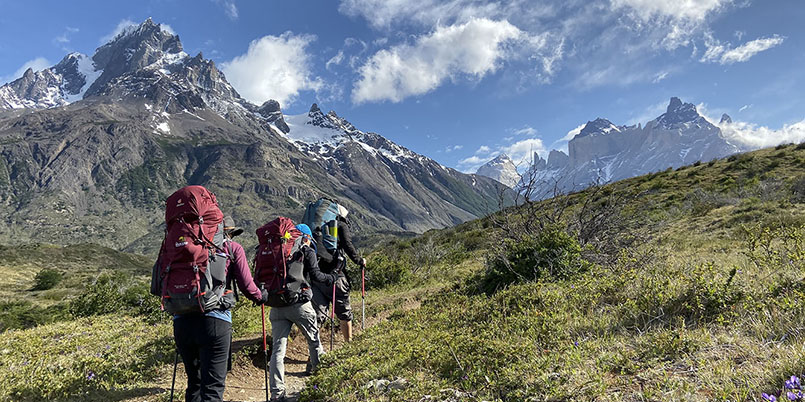
Mountain treks are safe, but preparations must be made to ensure safety. There are no absolute medical contra-indications to climbing to high altitude, except for certain cardiac and pulmonary diseases for which affected persons should consult a physician. Good conditioning will allow the climber to enjoy his/her trek at high altitude without being totally fatigued. Major disciplines regarded as mountain norms include;
Acclimatizing adequately:
Fitness is no help; indeed it can even be a handicap, as the fittest tend to push on ignoring the first symptom until they get a very bad dose. A sensible approach to acclimatization can help a great deal. A day spent exploring the forest or the heath zone around 1900-2500m can make a big difference as well as being worthwhile in its own kind. A walk around the camp for as long as you can helps also increase the level of acclimatization.
Eating right:
The greatest dietary requirements at high altitude is energy intake. A diet high in carbohydrates and supplemented with other foods of high calorific value such as fruits will best prepare the body for the challenging afro-alpine environment. Menus therefore should be meticulously organized with great emphasis on energy content and digestibility at different altitude.
Dressing Right:
Be sure you have the appropriate gear for the duration of the trip. Garments of wool and insulated synthetic fibers are highly recommended. Avoid cotton and nylon if you can. If hiking with porter(s), be sure to keep adequate gear in your backpack so that you have what you need, should you become separated during the hike.
Drinking Right:
The combined action of strong muscular exertion and strong winds predisposes a hiker to dehydration. It is of utmost importance to replace the lost fluids. To avoid dehydration, your fluid intake should be an average 2-3 liters a day so as to be on the safe side. The following symptoms are the signs for a person suffering from dehydration: – Reduced urine output, puffy skin, production of dark orange urine, reduced mental orientation and headache.
Observing Proper Hiking Habits:
The basic rules to be observed by any hiker are:-
* Have all the basic requirements for your day’s hike in your day pack e.g. drinking water, extra warm and water prove clothing, first aid kit, snacks etc. for easy access to them whenever you need. Do not force yourself on the strenuous hike if your body feels weak. A wise man will obey his body language.
